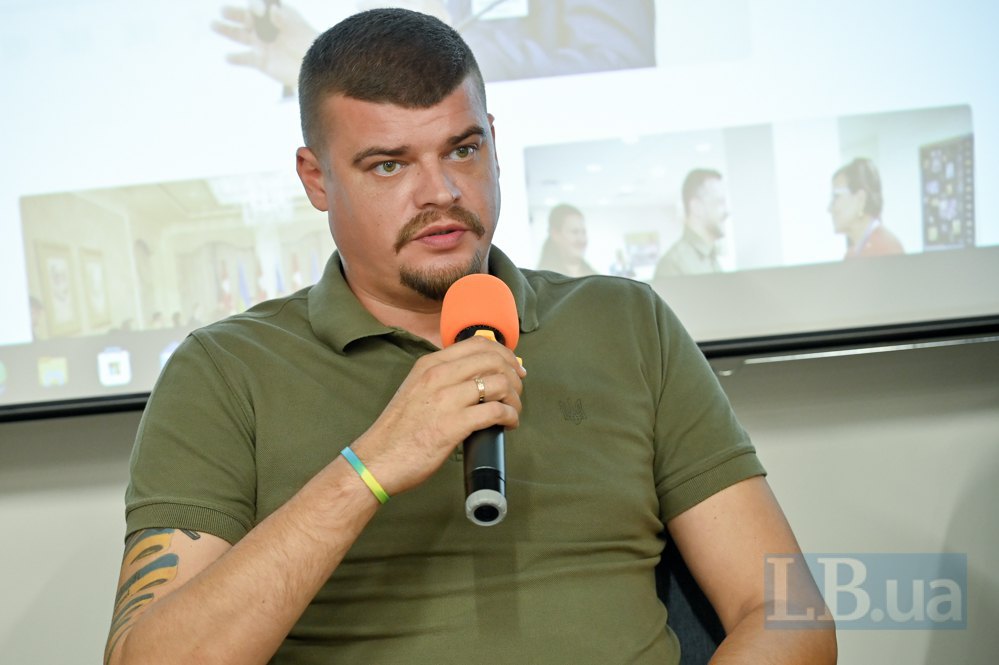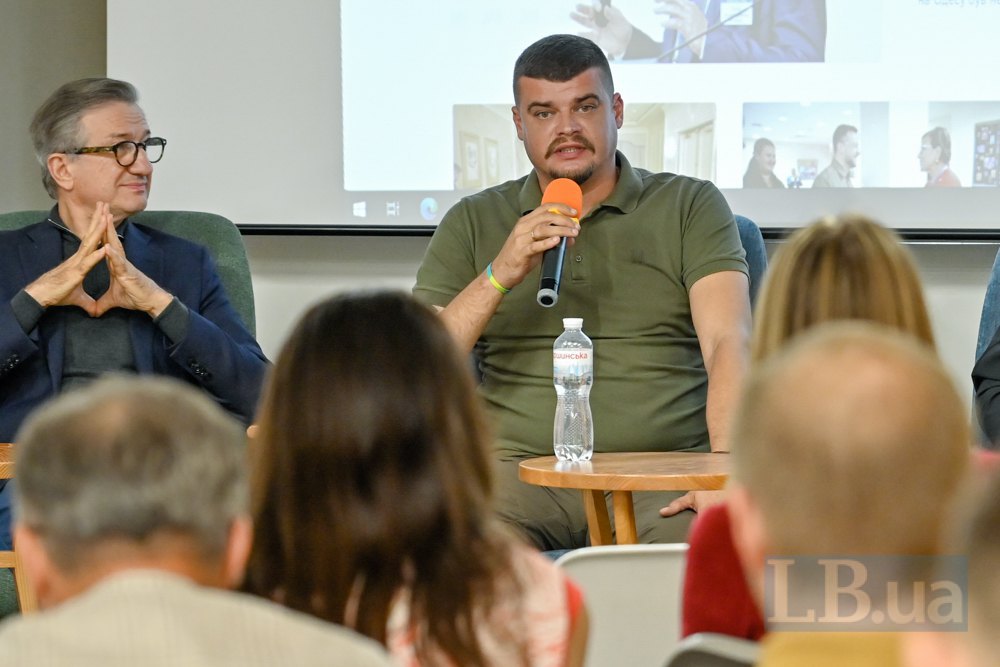
According to Artem Lysohor, the narratives that need to be rethought include the name of the region. In addition, he commented on the remarks such as "why the Russians did not gain a foothold in Kyiv or Chernihiv regions after 24 February, but did so in Donetsk and Luhansk regions", as well as approaches to recovery after de-occupation.
The name of the region
"The first narrative, and I don't want to offend anyone, is the name of the region. It was called Donbas in Soviet times, and this name is actively used by Russians now. Look at the Russian headlines. There is no Donbas in Ukraine, there are Donetsk and Luhansk regions. All regions are equal, equal among equals, so the Donbas narrative should be abandoned," says Artem Lysohor.
What should not/should be restored
The head of the Luhansk military administration is convinced that the restoration of cities and infrastructure in the deoccupied territories should be considered in the context of strategic importance and human potential. People want to return home, he said.
"There is an opinion that the completely destroyed Popasna (town destroyed by 94% - ed.note) should not be rebuilt. But we shouldn't forget that Popasna was, for example, a waterway that fed a large part of Luhansk Region. Therefore, it will have to be restored in some form.
In addition, I constantly communicate with citizens, including residents of Popasna, who now live in Novomoskovsk (Dnipro) region in large numbers. And when I met both the head and the citizens, the main request was to restore the town. Perhaps not in the same way as before, but make it home again. People who left Luhansk Region back in 2014 say the same thing. Many want to return. I think it's the same in Donetsk," he said.
It's the same with farmers, he adds: "They have a simple request: help us demine and we will all come back; if you need to, we will take loans for combines; create an agricultural cluster and we will work."
Moreover, young people want to return, says Artem Lysohor.
"Let me give you a simple example. We have two relocated universities from Luhansk Region - in Kyiv and Sumy. After our visit in June, we conducted an anonymous survey among the students there - 76% (out of 476 people) clearly stated their intention to return. Doctors and teachers who had to leave and are now working in other regions also declare this," says the head of Luhansk Region.

Why Russians were able to "gain a foothold and occupy new territories in 2022"
The head of the Luhansk regional military administration categorically rejects claims that the Russian military was able to effectively attack and seize new territories because of the population's low self-identification and loyalty to Russia. He insists that in 2022, neither Luhansk nor Donetsk regions, which were under Ukrainian control, had such sentiments. "Can we say that the Russians gained a foothold because the authorities there did not work well or people supported them? No," says Artem Lysohor. The reason for this, he says, is the huge number of Russian troops – it was simply not possible to resist them.
"We saw Kyiv, Chernihiv, Sumy, how selflessly they defended themselves, how they coped. This is true. But the blow that Luhansk and Donetsk regions took at that time was simply enormous," he argued.
"When eight brigades attack one town, and there are two battalions in it, and they repel these eight brigades for three days. All three days people were leaving Shchastya. This city was deemed to be a strong supporter of Russian aggression. But I was there and I cannot say that the Russians stayed in the newly occupied territories because of the people. They stayed because of 150,000 people who came from three directions. This is the problem. The situation was the same in Donetsk Region. I personally was the deputy head of the Joint Forces at the time and I know why Volnovakha fell. Because it was attacked by nine brigades. Why did they break through to Mariupol? Not because the Russians were supported by people, but because there were just too many of them. A lot of them. We were preparing for this attack, fighting, but no-one expected such an invasion," said Lysohor.

He agrees that there were and still are collaborators and loyalists to Russia in those territories, so the form of their responsibility should be determined by law. "Everyone who collaborated, fulfilled the requirements or facilitated the fulfilment of the requirements of the terrorist state or the occupying authorities must be held accountable," he says, but adds that there are many people who were unable to leave.
"I know a lot of people who stayed and cannot leave. For one simple reason – some were politicians, some worked in administrations, some disappeared and we still can't find them, public figures, ATO members," says Lysohor.
He also called for children who have been under occupation since 2014 not to be called the "lost generation" and said that 14 graduates from Luhansk, which was occupied nine years ago, had moved to the government-controlled territory to enter university.
"Yes, there was a lot of brainwashing at school. I communicate with those who left after staying under occupation for only a year and a half, and what people say makes my hair stand on end, such an imposition is happening. But let's not forget that there hasn't been such a powerful imposition since 2014, and the pressure has increased over the past year and a half.
So I would not say that we have lost young people. Until 2022, the Internet in Luhansk worked perfectly. Young people are digital now. They don't watch TV. They watch TikTok. They have seen what is happening in the world, in Europe. Let me give you an example. This year, 14 children from Luhansk entered [the relocated] universities under a state programme, with the assistance of various structures. Only from one city that has been under occupation for nine years. We cannot say that we have lost anything. This is our territory, most of the people there are ours," Lysohor concluded.








